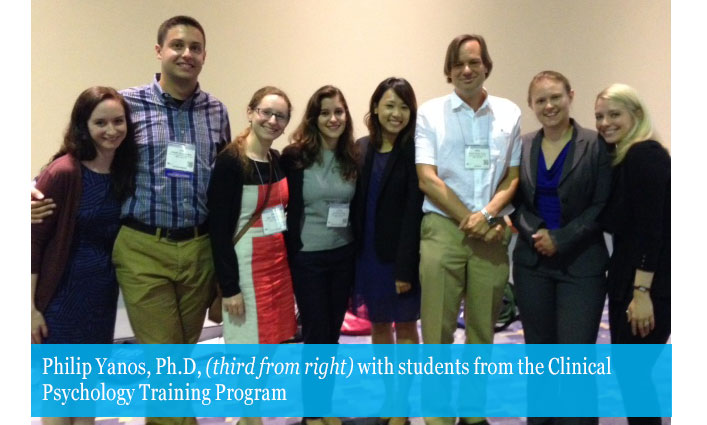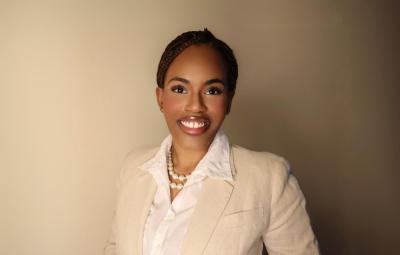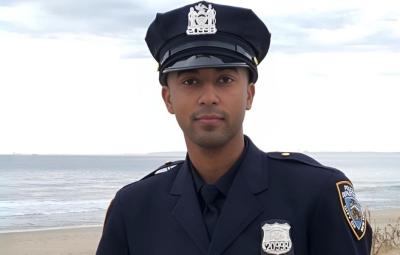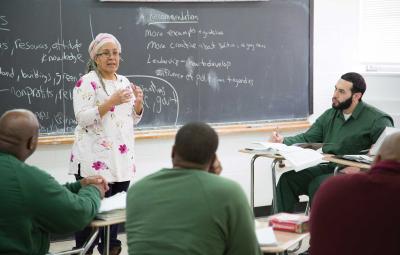
Students in John Jay’s Clinical Psychology Ph.D. Training Program are learning to become real changemakers in the public sector, working with individuals suffering from serious mental illness. Recently, their training earned the program recognition when it was named winner of the 2020 Excellence in Training Award from the American Psychological Association’s Division 18. The award recognizes programs successfully preparing students to provide evidence-based and recovery-oriented services to people living with a serious mental illness. “Winning the Excellence in Training Award validates that what we’re doing in this program is special,” says Philip Yanos, Ph.D., Professor of Psychology and Director of Clinical Training in the Clinical Psychology Training Program, breaking down the program’s uniqueness. “Most clinical psychology programs don’t focus on working with adults or children with serious mental illnesses, especially in the public sector. Our students recognize that this is a population that needs help, and their clinical work, research, and training is reflective of that recognition.”
“Winning the Excellence in Training Award validates that what we’re doing in this program is special.” —Philip Yanos
Learning in the Program
Offering a unique training experience, the program “is distinguished by its dual focus on forensic psychology and social justice, it’s balanced scientist-practitioner emphasis, and its focus on preparing students to work in the public sector or academia,” explains Yanos. By the end of the program, students gain several skills, or “competencies” as it’s known in the field. “Students have the ability to provide individual psychotherapy using evidence-based approaches. They’re also able to conduct psychological assessments, do research, teach, and supervise and consult others,” he says. In its entirety, the program takes about five to six years to complete, with students working a year-long internship and a number of part-time clinical rotations at hospitals, jails, counseling centers, and diversion programs.
“Our students know that there’s a real need to work with people who have serious mental illness. These people are usually underserved when it comes to mental health services, but they’re overrepresented when it comes to interactions with police and the criminal justice system.” —Philip Yanos
Helping the Most Vulnerable
Recognizing that there’s a lack of mental health services for people with serious mental illness, particularly for system-impacted individuals, students in the Clinical Psychology Training Program take classes on psychoeducation, wellness self-management and cognitive-behavioral therapy for psychosis, and they receive social skills training, to better prepare them to work in the field. “Students in this program know that there’s a real need to work with people who have serious mental illness. These people are usually underserved when it comes to mental health services, but they’re overrepresented when it comes to interactions with police and the criminal justice system.” And, while the need to treat patients in the public sector is high, the actual treating of this population is low in the field of clinical psychology. Why is this the case? Yanos explains that for the last 50 years “the number of psychologists working in the public sector has declined and training programs have lessened their emphasis on treatment within these populations, partly due to funding. There’s a lack of focus on this group relative to other disciplines like social workers and psychiatrists,” he says, adding that John Jay’s program will bring newfound emphasis and hope to this often underserved population. “We’re going against that trend. In our program, we’re encouraging students and training them to specifically work in the public sector.”
“In our program, we’re encouraging students and training them to specifically work in the public sector.” —Philip Yanos
Celebrating its Students
Over the course of the program’s history, alumni have successfully transitioned their experiences to a number of public service settings, with their ability to work in the sector advanced by the tuition support they received while in the program. “The stipend our students get distinguishes our program from others in the New York area, where students are typically paying out-of-pocket, saddling them with debt and restricting their job opportunities,” says Yanos. One of the first students to go through the Ph.D. program was Stephen Smith, Ph.D. ’13, who is now a team leader for OnTrack NY, an innovative treatment program for adolescents and young adults in New York. “While in our program, Stephen focused on applying science to the practice of psychology. He became a trainer in an evidence-based practice, working with young people who were developing their first psychotic episode. That early intervention is important to preventing a major crisis. Now he’s helping lead training at OnTrack NY, where he’s having a massive impact in the field as well as in the State of New York.” Another alumna that’s having an incredible affect in the public sector is Virginia Barber Rioja, Ph.D. ’09. “She was from one of our very first cohorts of the program. She quickly made a name for herself, working in services for justice-involved people with mental illness in New York City. Now, she’s Co-Chief of Mental Health for NYC Health + Hospitals/Correctional Health Services.”
“Through their work, our students are helping people feel better about their lives while also trying to change systems for the better.” —Philip Yanos
Training During Covid-19
For current students in the program, the Covid-19 pandemic put a temporary hold on their infield work, impacting some of their training—some students were able to provide services through telehealth. But, this Fall 2020 semester, students are hoping to return to those public sector settings and the patients they so deeply care about. “With adequate documentation, protection equipment, and testing, they’ll be able to return to some of those settings, but not all,” says Yanos. “Our students want to be around patients. They want to connect with them on a human level and treat them with compassion and humanity.” Their will to return on-site to conduct trainings and clinical rotations is a testament to not only the students’ desire to make a difference in the lives of the patients they work with and in society, but a reflection of what the program has instilled in them. “Our students are advocates for justice, and they want to affect society in a positive way,” says Yanos, noting the program teaches them how to study, address, and come up with solutions to issues. “They’re currently doing a lot of exciting research that they hope will create change. They’re studying the impact of implicit bias toward people with mental illness among police officers, and they’re researching the long-term consequences of child abuse and neglect,” he says, naming a few of the ongoing research projects. “Through their work, our students are helping people feel better about their lives while also trying to change systems for the better. Students are bringing with them experience that’s a perfect blend of psychology, research, and advocacy and I’m proud to be surrounded by their passion and immense dedication to the field.”



